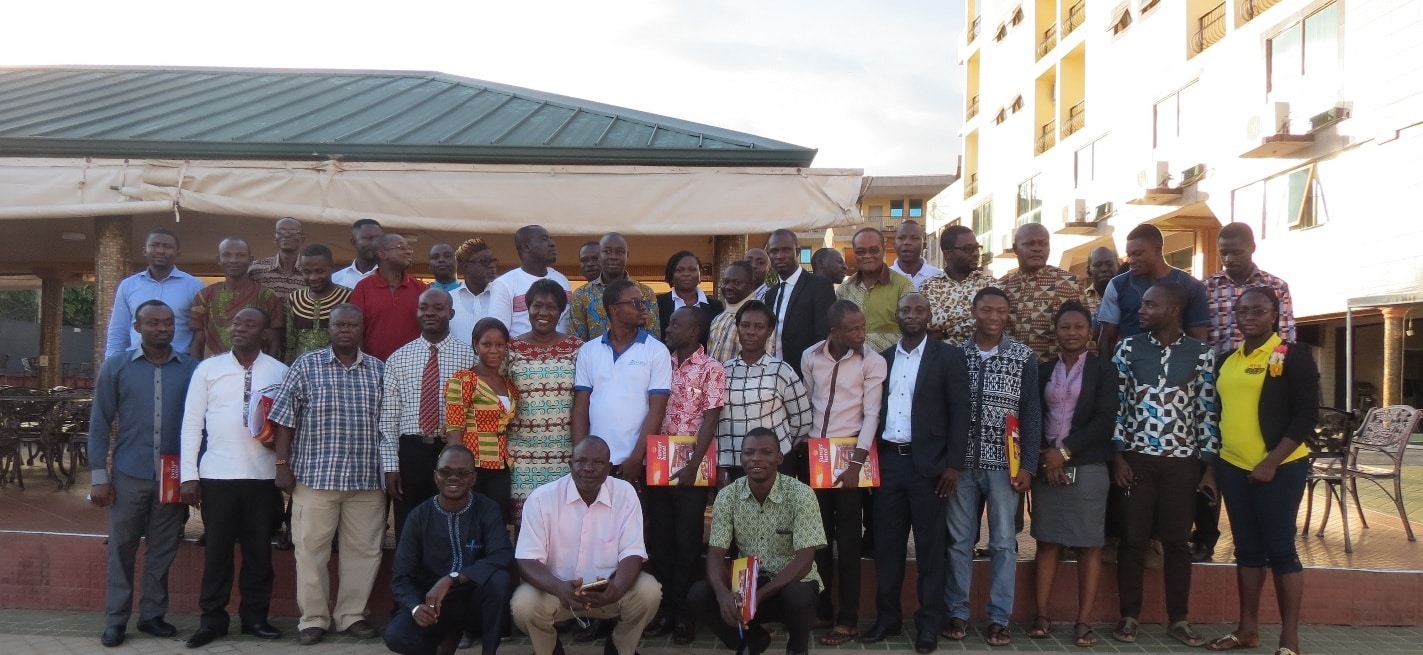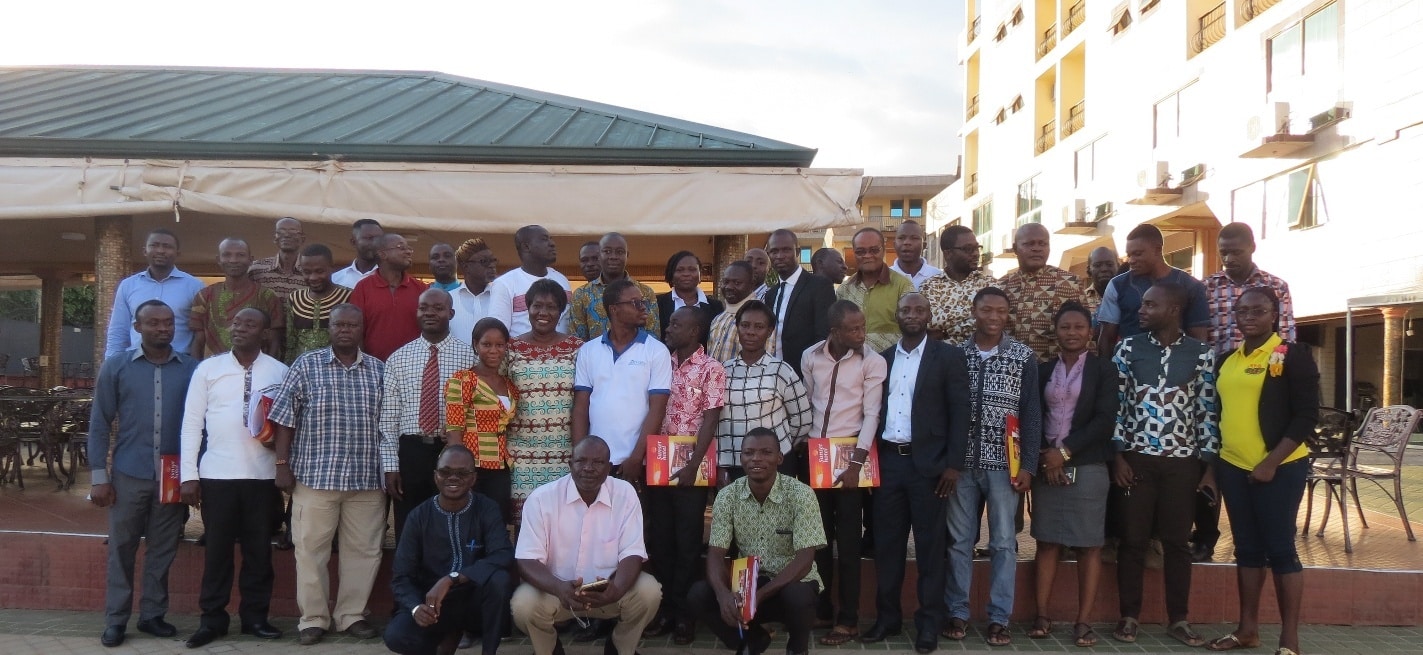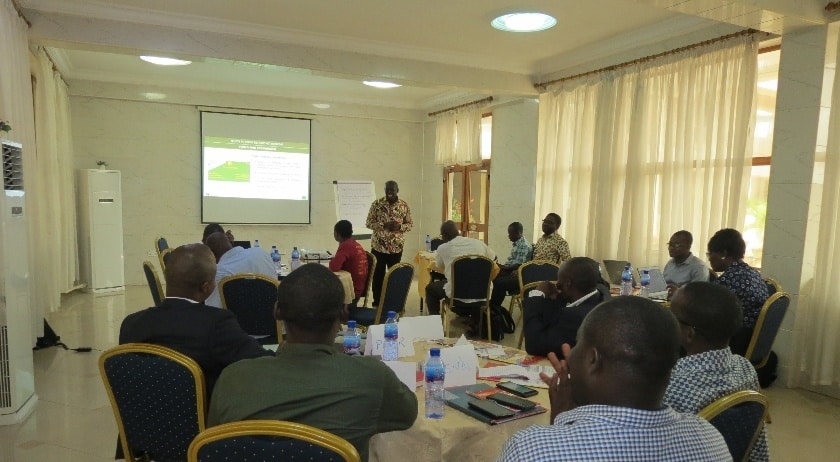
This post originally appeared on the blog of the Rural and Agricultural Finance Learning Lab.
Each year, more than 10 million young people across Africa enter the job market, competing for just three million formal jobs. As the continent’s youth population swells steadily towards a projected total of 800 million by 2050, this demographic crisis will intensify even further.
This pinch is felt perhaps most acutely in Africa’s rural regions, where agriculture dominates the market but often fails to deliver the lucrative careers that young people desire. Instead, many of the 300 million young people classified as “working poor” have agricultural jobs beset by low pay, low productivity, and exposure to risks such as shifting weather patterns and volatile markets. Job prospects in their home communities are unattractive, so many leave their family farms behind.
Why rural talent management?
Rural talent management is a pressing economic challenge, but it’s one that agricultural businesses are uniquely positioned to address. For example, by providing young people with reliable incomes and jobs—not only for farmers, but also for employees throughout the enterprise—agricultural businesses can help make the industry an attractive career opportunity for young job seekers.
That’s why Root Capital and the Mastercard Foundation have partnered to support early-stage agricultural businesses that will help raise incomes for more than 300,000 smallholder farmers in West Africa. With a USD 5.2 million commitment to Root Capital, this five-year initiative will support early-stage agricultural businesses that generate transformational impact in rural communities in Côte d’Ivoire, Ghana, and Senegal. As part of this partnership, we at Root Capital developed a “Talent Partnership Program” that matches recent graduates with entrepreneurs in rural businesses across Ghana, Senegal, and Côte d’Ivoire.
How does the Root Capital talent management program work?
Many of the rural businesses we finance face a common challenge: they struggle to find the talented young professionals they need to run their business well. Between 2015 and 2020, millions of people in Ghana, Senegal, and Côte d’Ivoire will emigrate from rural areas in search of jobs that may or may not materialize—leaving the businesses that do exist in their communities unable to attract the talent they need.
We wanted to understand this phenomenon better, so at the end of 2016, Root Capital conducted focus groups with employees and managers at our client businesses in West Africa and with young professionals just beginning their careers in agriculture. Hearing directly from both young professionals and senior leaders at these rural businesses helped us lay the groundwork for a program that could address the challenges of both.
One entry-level employee mentioned that he wished he had a stronger network of support, because he rarely felt “100% ready to take the next step” in his professional growth; another expressed a desire to find a job in agronomy with which to launch her career. Senior leaders, in turn, expressed challenges in finding the young talent needed for their business to succeed. One CEO shared a need to reduce his company’s reliance on himself because he wanted to see it last beyond his own involvement; another business participating in the program didn’t have a full-time accountant, meaning that some accounting tasks pulled staff away from their core responsibilities while others slipped through the cracks.
Based on these findings and other discussions, we launched a brand-new pilot of the Talent Partnership Program, which aims to address the challenges raised in these focus groups. Through this program, Root Capital helps its clients 1) recruit a recent graduate in accounting, 2) scope a one-year “Talent Placement” for them, and 3) provide a stipend for the new intern, funded by the Mastercard Foundation.

Highlighting the success of our rural talent management program thus far
In the program’s first year, we have supported four business entrepreneurs and young graduates across Senegal and Ghana—and will soon expand the program to Cote d’Ivoire. In addition to helping businesses improve their financial management systems and giving graduates the opportunity to build their networks and acquire professional experience, Root Capital expects the program to demonstrate to businesses the value of having an in-house accountant. Our goal is that many of these placements extend to permanent positions on the client’s dime.
A few of the big wins from our first year:
- Mentorship by Root Capital trainers. Before the Talent Placement begins, Root Capital sends a trainer to the client business to assess existing accounting systems and processes. Through interviews with our clients’ staff, this trainer helps to define a vision of “success” for each intern and to set expectations with the client. Then, through onsite visits and mentorship over the course of the Talent Placement, the same advisor helps the young graduates meet this vision for success.
Alignment with financing, from Root Capital or others. The majority of the participating businesses currently manage a debt or equity investment by an impact investor. Talent Partnerships are helping them do so more successfully. For example, one Root Capital client saw elevated risk on their last loan due to delays collecting payment from their buyers, and the arrival of the intern freed up other staff to pursue these collections.
Value creation for the client. As interns “learn the ropes” at their new placements, managers can focus more on higher-level priorities like strategy or sales and marketing. We’ve seen managers grow more comfortable with long promotional trips knowing that they have in-house accounting support to “hold down the fort.” Additionally, several of our participating clients have increased the stipend from the base amount funded by the Mastercard Foundation, a potential indication that these internships could translate into full-time positions.
Using progressive partnerships to take rural talent management to the next level
Already, we’ve seen this program show signs of positive impact. However, to ensure that rural businesses have the steady supply of talent they need to support farmers for generations, each key stakeholder has a role to play.
- National government and policy makers: The Chicago Council’s recent report offers strong recommendations for a path forward, such as encouraging high-income countries like the United States to commit to a long-term global food and nutrition strategy that can create opportunities for emerging talent in lower- and middle-income nations (LMIEs). The governments of LMIEs, in turn, can replicate and adapt successful examples of government programs that create opportunities for youth in agriculture—like Ghana’s National Service program, which mandates that students must complete a year of service upon graduating from university.
Investors and donors: Non-state entities also have a critical role to play in building an environment where youth in agriculture can thrive. As part of due diligence efforts, agricultural investors can examine their investment recipients through a youth lens, evaluating what investees are doing to involve youth in their business and supporting programs to develop young talent. Nonprofits and foundations, in turn, can prioritize funding youth development programs—ensuring that those programs prepare young people for jobs that are both available and rewarding.
In our experience, supporting youth in agriculture does not come free of challenges; for example, finding talented young professionals who want to stay in rural communities instead of moving to the city isn’t easy. However, we’re confident that as our program continues to grow and to demonstrate success, we can continue to create a win-win for both our clients and West African youth.
Without access to predictable markets for their crops, many of the estimated 48 million smallholder farmers in sub-Saharan Africa find themselves trapped in a cycle of poverty. To address this, Root Capital and the Mastercard Foundation have partnered to support early-stage agricultural businesses that will help raise incomes for more than 300,000 smallholder farmers in West Africa.
Whether it’s an individual contribution or a large grant from a foundation like the Mastercard Foundation, it’s your donations that allow us to reach the businesses that need funding the most — and that often have the potential to create the greatest impact.
This is the third in an ongoing series of stories about our partnership with the Mastercard Foundation in West Africa.



